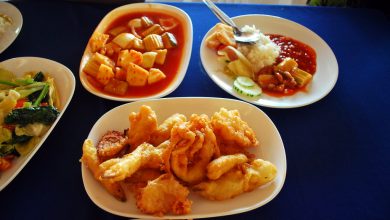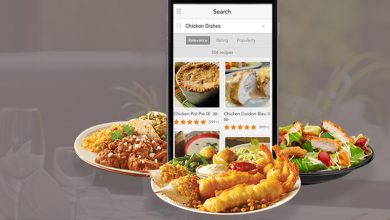Sanitation Tips for Your Next Barbecue

We frequently talk about the strength of nourishments as far as their supplement substance and how their supplements and phytochemicals can counteract ailments and help deal with your weight. Be that as it may, you may regularly disregard the significance of sanitation as fundamental precautionary measures that ought to be taken to keep you healthy.
This late spring, as you have your end of the week grills, remember that even probably the most beneficial nourishments could cause you and your visitors disease if legitimate sanitation isn’t pursued, particularly when working with crude meat and crisp produce.
Here are some significant hints to remember so you, your family and your companions can best appreciate the solid nourishments you adore:
At the Store:
• When you’re nourishment shopping, get refrigerated food sources directly before looking at.
• When putting meats in your truck, separate crude meat and poultry from different nourishments.
• Place each bundle of crude meat and poultry into plastic sacks to keep the juices from sullying different nourishments.
• Drive straightforwardly home from the store to guarantee that the nourishments aren’t kept from refrigeration for a really long time. On the off chance that the outing home will include a few quits, carry a cooler with ice to help keep the meats and refrigerated things cold.
At Home:
• Place all meats in the icebox right away.
• Freeze meat and poultry that won’t be utilized inside 1 or 2 days. Stop other meat inside 4 to 5 days.
• Completely defrost all meats before they go on the flame broil to guarantee exhaustive and in any event, cooking.
• Practice safe defrosting strategies in the fridge or under virus running water. Never defrost solidified meat or poultry by giving it a chance to sit out on the ledge.
• Microwave nourishments just on the off chance that they will quickly be put on the flame broil.
When Marinating Meats for the Barbecue:
– Make sure you marinate meats in the cooler, not on the counter.
– Poultry and cubed or stewed meat can be marinated for as long as 2 days.
– Beef, veal, pork, and sheep cuts might be marinated for as long as 5 days.
– If sparing marinade for later use, hold a bit of the marinade before setting crude meat in it to keep cross sullying from crude to cooked nourishments.
– If the marinade interacts with crude meat with aims of being utilized on cooked nourishments as a sauce, heat the marinade to the point of boiling first to wreck any hurtful microorganisms.
Shipping the Food:
• When conveying nourishment to another area, make a point to keep it cold to limit any bacterial development.
• Use a protected cooler with ice or ice packs to keep the nourishment at 40° or lower.
• Pack nourishment directly from the fridge into the cooler preceding venturing out from home.
• Pack perishables and non-perishables in discrete coolers.
• Avoid opening the top of the cooler time after time, and keep it out of direct daylight to keep the
temperature steady.
Tidiness at the Grill:
• Be certain to have a lot of clean platters and utensils.
• Use separate platters and utensils for crude and cooked meats and poultry.
• If away from home, pack wet towelettes for cleaning surfaces and hands.
During Cooking:
• NEVER halfway flame broil meat or poultry and complete the process of cooking later.
• Meat and poultry regularly dark colored exceptionally quick outwardly, and can be a wrong marker of whether it is protected to eat. Utilize a nourishment thermometer to be certain beyond a shadow of a doubt.
• Safe least temperatures:
Meat, veal, sheep cuts: 145°F (medium uncommon); 160°F (medium)
Burgers produced using ground meat: 160°F
Pork: 160°F
Poultry: 165°F
Warming:
• When warming completely cooked meats, flame broil to 165°F or until steaming hot.
Keeping Hot Food Hot:
• After nourishments are totally cooked, keep them hot until served, at 140°F or hotter. You can do this by keeping previously barbecued nourishments on the flame broil to keep them from overcooking. In the home, they can be kept in a 200°F stove, in an abrading dish, slow cooker, or warming plate.
Extra Safety:
• Refrigerate any scraps expeditiously in shallow holders to uniformly cool the nourishment.
• Discard all nourishment forgot about for over 2 hours (1 hour if in blistering climate).
This may appear as though a ton of principles to pursue just to get ready for a family grill, yet I guarantee it merits requiring some investment to shield you and your family from getting foodborne sickness. Make it simpler for yourself by keeping the majority of the temperatures stuck some place unmistakable in your kitchen, either on the cooler or on an announcement board. In the blink of an eye, these sanitation tips will turn into a propensity for you in the kitchen!
Bonnie R. Giller is an enlisted and ensured dietitian nutritionist and confirmed instinctive eating instructor who enables incessant weight watchers to break free of the agony of abstaining from excessive food intake and get the sound body they cherish. She has various degrees in clinical nourishment, an accreditation as a confirmed diabetes teacher and she works with individuals who are battling with eating less junk food or wellbeing conditions like diabetes reclaim control so they can get a solid body and live their lives side effect free.




